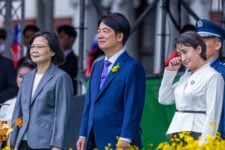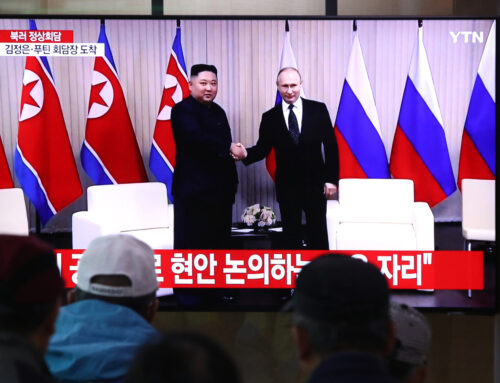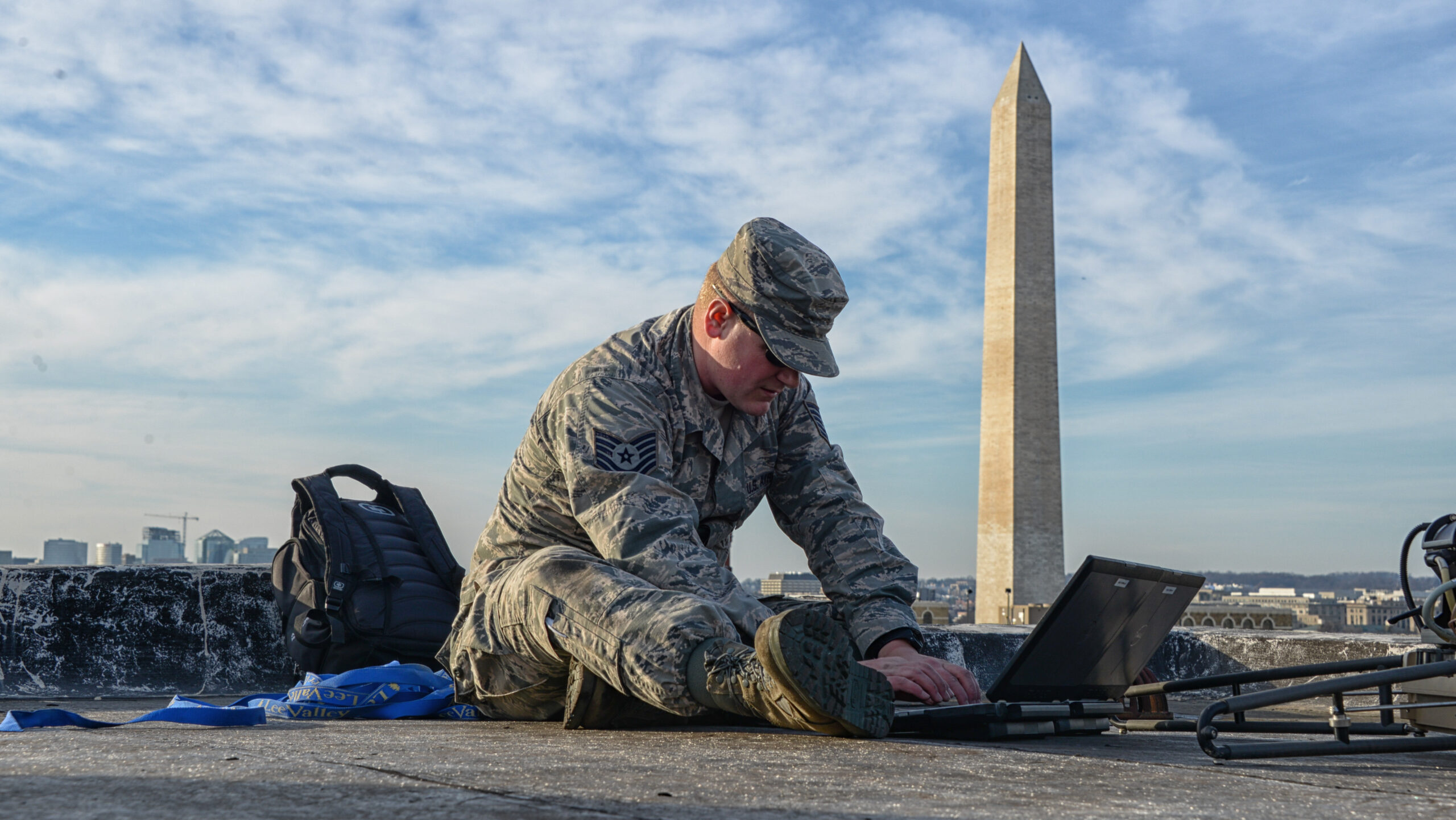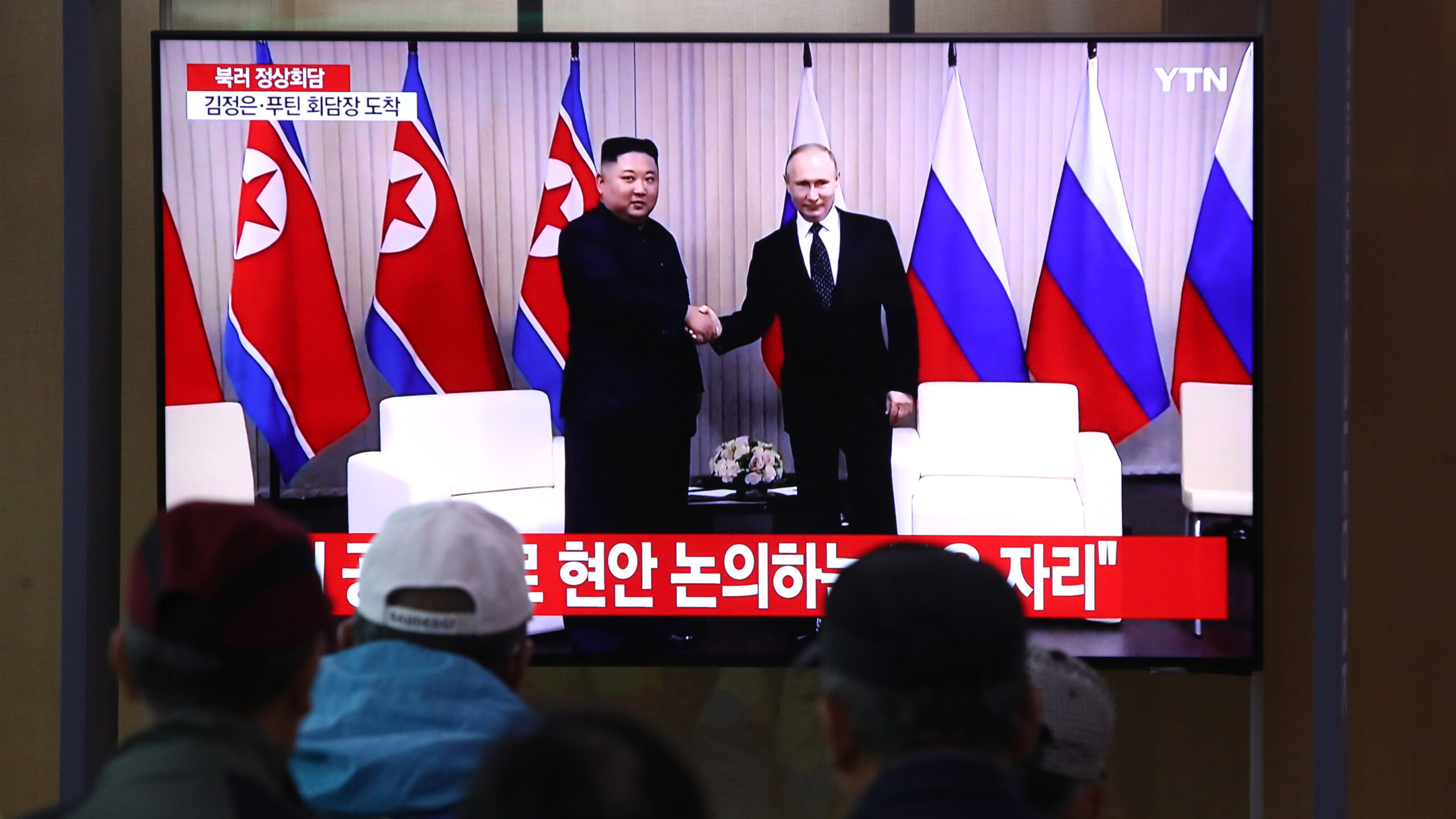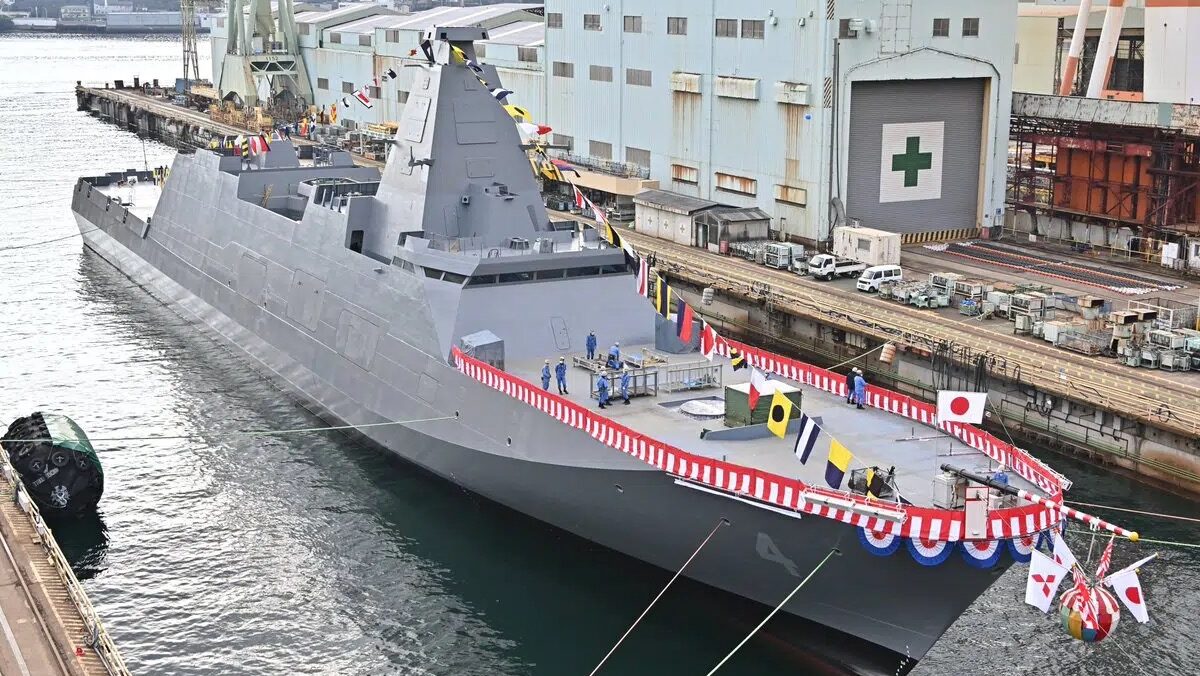Taiwan’s former President, Tsai Ing-wen, Taiwan’s new President, Lai Ching-te, and the new Vice President, Hsiao Bi-khim, show up on the stage during Taiwan’s new President Lai Ching-te’s inauguration ceremony on May 20, 2024 in Taipei, Taiwan. (Photo by Annabelle Chih/Getty Images)
SYDNEY — Within hours of Taiwan’s new president taking office Monday, China began a social media and propaganda effort to convince the Taiwanese people and Taiwan’s supporters that any efforts to become independent would, in the words of the foreign minister, “pose the most serious challenge to the international order, the most dangerous change to the status quo in the Taiwan Straits, and the most significant disruption to peace in the Straits.”
The public offensive could be followed shortly, however, by more subtle manners of persuasion and interference, including the covert and widespread use of cyber tools against individuals, companies, the military and government organizations seen to be pushing independence, if recent history recounted in a new report from US defense contractor Booz Allen Hamilton is any indication.
The report, titled “How to Succeed at Annexation Without Really Trying: The PRC’s Taiwan Cyber Strategy Explained” and published earlier this month, analyzes the online arm of China’s quest to control Taiwan. And while the report said that China is unlikely to use cyber alone to win against Taiwan, one of the report’s authors described it Friday to Breaking Defense as a “critical tool in the PRC [People’s Republic of China] strategy.”
“And, as this is very much perceived as a long-term strategy, you know, potentialy over decades, it’s difficult to say will it eventually succeed?” said the author, who was not identified in the report and spoke on the condition of anonymity.
The report said Beijing would likely use the fact that Lai Ching-te, also known as William Lai, comes into office with a divided legislature to its advantage. While his party, the DPP, won a plurality of the vote, at 40.1 percent, the Kuomintang (KMT) came in second, at 33.5 percent, while the new Taiwan People’s Party (TPP) scored an impressive 26.5 percent.
This divided government provides “new opportunities for the PRC to shape this new power relationship, to keep Taiwan within its sphere,” the report says. (Lai used his inaugural address to tell China to back off.)
During the last election, when Tsai Eng-wen won the presidency and the legislature was dominated by the DPP, China used a mix of cyber and kinetic forms of pressure, the author said.
“The PRC did not try to spark a war with Taiwan, but they greatly increased incursions in Taiwanese airspace, put their navy near Taiwan, essentially trying to, say, ‘Don’t you stray too far. You know, you may be on this path right now. But don’t forget that we can also increase pressure on you,’” the author said.
So far today China seems to have reacted with military restraint, according to the Taiwanese Ministry of Defense.
8 PLAN vessels operating around Taiwan were detected up until 6 p.m. today. #ROCArmedForces have monitored the situation and responded accordingly.
Illustration is not provided due to no PLA aircraft crossing the median line or entering our SW ADIZ during this timeframe. pic.twitter.com/A0tNBpvFv0
— 國防部 Ministry of National Defense, R.O.C. 🇹🇼 (@MoNDefense) May 20, 2024
However, the report offers examples of how the PRC “is wearing down certain aspects of Taiwan’s identity in the international community.”
For example, China uses control of the Great Firewall, which bars content China deems unacceptable, as a way to force American and other foreign companies to change the language that they use about Taiwan if they want access to the vast market within China, the report’s author said. It’s especially powerful in shaping the behavior of Taiwanese companies who are hungry to reach the much bigger market of China.
“The ability for these media companies in Taiwan to sell to the substantially larger population in China becomes possible if they change the language, the party line that they publish in their outlets, in order to not be blocked by the Great Firewall,” the author said.
In another example, ByteDance, the China-based owner of TikTok, “keeps a list of individuals blocked or restricted for posing a ‘public sentiment risk.’ This list reportedly targets users who advocate policies that counter Beijing’s preferred narratives,” the report says, echoing a US State Department report from September. “Topics that the PRC often censors domestically in the media and online, like protests in Hong Kong and references to Tiananmen Square, are statistically underrepresented on TikTok internationally, contrasted with platforms like Instagram.”
On the military side, the report says a group called Tropic Trooper has spent at least the last decade “hammering the military and state security apparatus in Taiwan.” The group, also identified by cybersecurity firms, has attacked the Ministry of National Defense’s Government Affairs Office, the National Defense University, the Talent Recruitment Center within the Office of the Deputy Chief of Staff, military hospitals under the Military Medical Bureau, and the Political Warfare Bureau, according to the report.
Beyond the immediate threat to those systems, the attacks have had the effect of generating “deep, deep, deep concerns about how thoroughly they are being exposed by PRC espionage efforts” and whether, the Booz Allen author said, this will diminish trust between Taiwan and other militaries. “Would the US, would foreign partners, be unwilling to even share information with Taiwan if it might so easily just make its way back to the mainland?”
All of this activity is coordinated to one end, the report finds: “The PRC shows a strategic preference for activities in cyberspace and other domains that gradually bolster its position over an extended period, prioritizing steady progress and cumulative gains over immediate, overt victories. By methodically wearing down competitors and subtly undermining opposition, combined with a sustained effort to enhance its own capabilities, the PRC aims to shift the balance of power incrementally but decisively in its favor,” the report says.
To counter these efforts, the report recommends something that the United States and other partners often struggle with — coordination across agencies.
They should “involve a cross-section of policymakers and experts from military, intelligence, and civilian agencies to provide critical insights into managing competition in this gray zone and ensure effective interagency coordination, enhancing national strategic preparedness and response capabilities.”
Some US officials have warned that China could move against Taiwan militarily soon — as early as 2027 in what’s known as the Davidson Window. But Gen. C.Q. Brown, chairman of the Joint Chiefs of Staff, has said In November he doubts China would choose to take the island by force.
“He will try to use other ways to do this,” Brown said.


